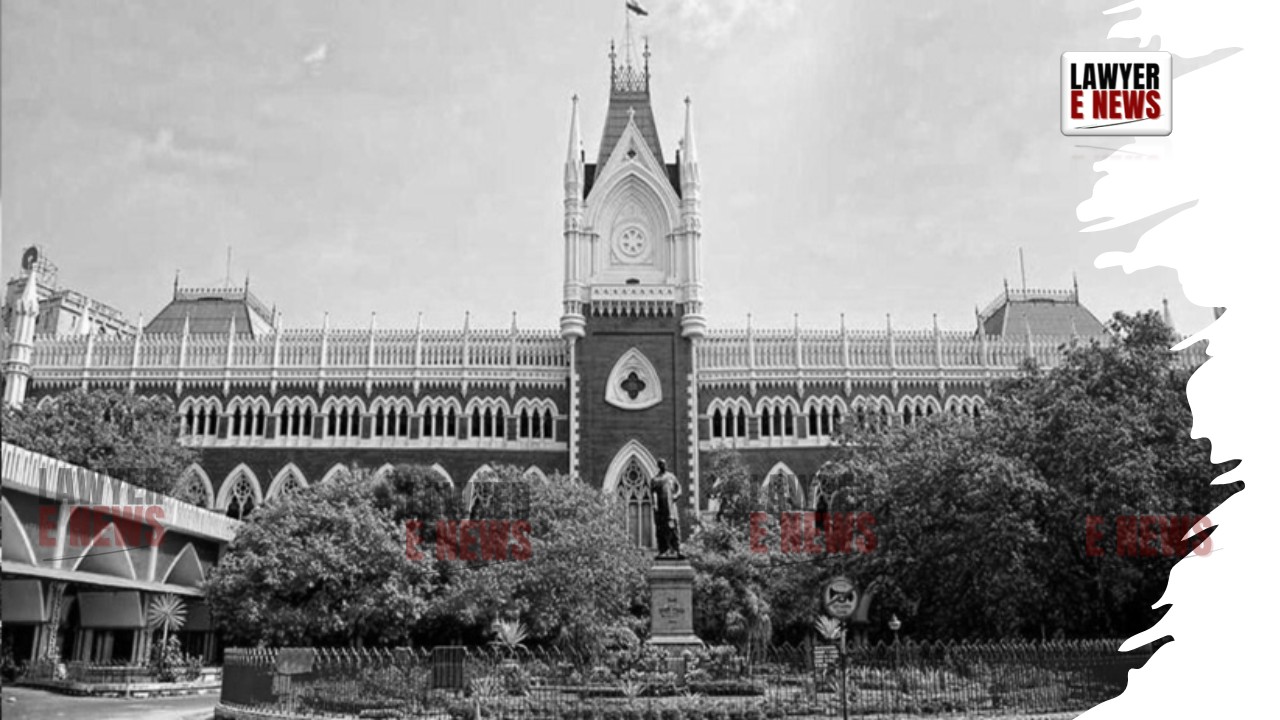-
by Admin
15 February 2026 2:36 AM



Calcutta High Court dismissed a civil revision application challenging an order that allowed the amendment of a written objection under Order 6 Rule 17 of the Code of Civil Procedure, 1908 (CPC). The court upheld the trial court’s discretion, emphasizing that amendments may be permitted even after the commencement of trial if they are based on subsequent events and are necessary for deciding the real issues in controversy without causing prejudice to the opposing party.
“Amendments Necessary to Address Real Issues in Controversy Must Be Allowed Liberally,” Rules Court
Justice Bibhas Ranjan De observed:
“The tone and tenor of the amendment sought for, in my opinion, has a reasonable nexus with the actual dispute in question and is absolutely necessary for proper adjudication. Amendments addressing subsequent events do not violate the proviso to Order 6 Rule 17 CPC, as the purpose of such amendments is to achieve justice.”
The court ruled that the trial court's order allowing the amendment of a written objection in a miscellaneous case—arising out of an injunction violation application—was legally sound and did not warrant interference under the supervisory jurisdiction of Article 227 of the Constitution.
• Initial Suit and Injunction Order: The petitioners filed a title suit (No. 32 of 2013) for declaration, permanent injunction, and mandatory injunction. A status quo order concerning the nature, character, and possession of the property was granted by the trial court in February 2013.
• Violation Alleged: In 2014, the petitioners alleged a violation of the status quo order under Order 39 Rule 2A CPC, leading to Miscellaneous Case No. 02 of 2014.
• Written Objection and Amendment Application: The respondent filed a written objection in August 2014 but later sought to amend it in August 2019 to incorporate facts that had arisen due to subsequent events—specifically, a High Court order dismissing a contempt application in January 2015.
• Trial Court’s Order: The trial court allowed the amendment application on the ground that it involved subsequent facts necessary for the adjudication of the case, despite objections from the petitioners.
Amendments Based on Subsequent Events Are Permissible
The court noted that the amendment sought by the respondent was based on subsequent facts that had occurred after the filing of the initial written objection in 2014. The event—the High Court's dismissal of a contempt application—took place in January 2015, making it a legitimate "subsequent event" under Order 6 Rule 17 CPC.
Justice De observed:
“Subsequent facts that come to light after the commencement of trial can be incorporated through amendments, provided they are necessary for the proper adjudication of the dispute and do not prejudice the opposing party.”
Proviso to Order 6 Rule 17 CPC Satisfied
The proviso to Order 6 Rule 17 CPC requires that amendments after the commencement of trial be allowed only if the facts could not have been raised earlier despite due diligence. The court found that the proposed amendment satisfied this criterion, as the subsequent event had occurred after the filing of the principal written objection.
No Prejudice to Opposing Party
The court emphasized that the proposed amendment did not change the nature or character of the case and would not prejudice the petitioners. Instead, it served to bring all relevant facts before the court for a fair resolution of the dispute.
Article 227: Limited Scope of Supervisory Jurisdiction
The court reiterated the principle that the supervisory jurisdiction under Article 227 of the Constitution is to be exercised sparingly and only in cases of manifest injustice or jurisdictional error. Justice De held:
“Under Article 227, the High Court’s power is limited to ensuring that tribunals and lower courts act within their jurisdiction. It cannot interfere with discretionary orders unless they result in a miscarriage of justice.”
The court found no jurisdictional error or injustice in the trial court’s order and upheld the amendment.
Key Takeaways from the Judgment
1. Subsequent Events: Facts arising from subsequent events can justify amendments even after the commencement of trial, provided they are relevant to the dispute and do not prejudice the opposing party.
2. Liberal Approach to Amendments: The courts should adopt a liberal approach in allowing amendments that facilitate the adjudication of the real issues in controversy.
3. Limited Role of Article 227: Supervisory jurisdiction is not a substitute for appellate review and cannot be used to interfere with discretionary orders unless they result in a miscarriage of justice.
The civil revision application was dismissed as devoid of merit, and the trial court's order allowing the amendment was upheld. All interim orders were vacated, and the parties were directed to proceed with the trial.
Date of Decision: 05/12/2024
